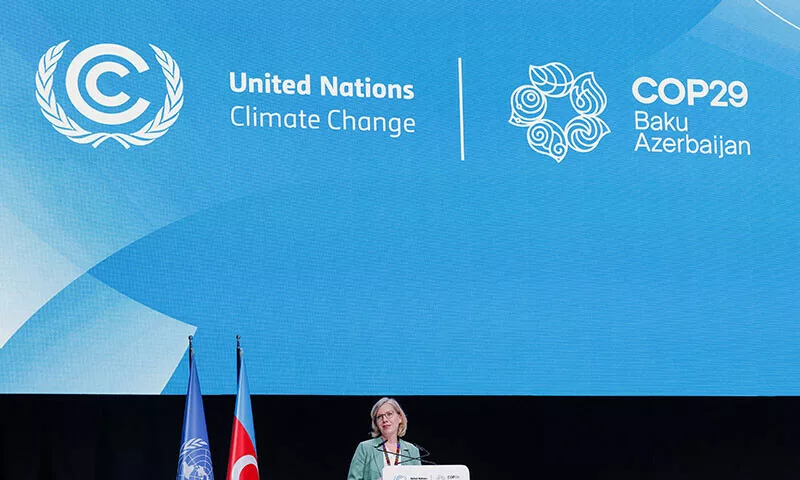Negotiators at the UN climate talks on Tuesday aimed to overcome a deadlock after G20 leaders endorsed the need for “trillions” of dollars in funding for poorer nations, though key issues remain unresolved.
Ministers at COP29 in Azerbaijan had been hoping for a boost from the G20 summit in Rio de Janeiro, expecting a declaration that could restart stalled negotiations. While the G20’s statement on climate finance was cautiously welcomed, the omission of a call to “transition away from fossil fuels” was disappointing to activists.
UN climate chief Simon Stiell commented that the G20 delegations now had clear directives for COP29 in Baku. “We urgently need all nations to bypass the posturing and move swiftly towards common ground across all issues,” he said.
Developed nations are being urged to significantly increase their annual pledge of $100 billion to support poorer countries in addressing climate change. However, negotiations in Baku are being delayed by disagreements over the size of the commitment, who should fund it, and the types of financing that should be included.
The chair of the G77+China, representing developing nations, called the G20 statement a “good building block,” acknowledging that the required funding could be in the “trillions” of dollars. However, Adonia Ayebare, the group’s Ugandan chair, expressed concerns over the vague wording that the money should come from “all sources” and reiterated that it should be from public sources, specifically grants rather than loans.
The G20 statement highlighted the need to enhance international cooperation and increase both public and private climate finance for developing countries. While some activists viewed this as a positive step, others were less optimistic, with a European negotiator admitting that expectations for more progress might have been too high.
Developing countries, which contribute the least to global greenhouse gas emissions, are calling for an annual $1.3 trillion commitment to help them adapt to climate change and transition to clean energy. Fiji’s deputy prime minister, Biman Prasad, noted the discrepancy, stating that $1.3 trillion is insignificant compared to the $7 trillion spent annually on fossil fuel subsidies.
Although some developed nations are advocating for private sector involvement in climate finance, there are calls to expand the donor base to include emerging economies like China, which, despite being the world’s second-largest economy, is still classified as a developing nation.
Negotiators also face obstacles due to Saudi Arabia’s resistance to including language from last year’s COP28 pledge regarding moving away from fossil fuels. EU climate envoy Wopke Hoekstra emphasized the need to build on the UAE consensus, warning that a backslide would be detrimental to global climate progress.
Activist Harjeet Singh from India criticized the G20 for failing to reaffirm their commitment to fossil fuel transition, calling their rhetoric a “stark failure in leadership” amid the ongoing deadlock on climate finance at COP29.




